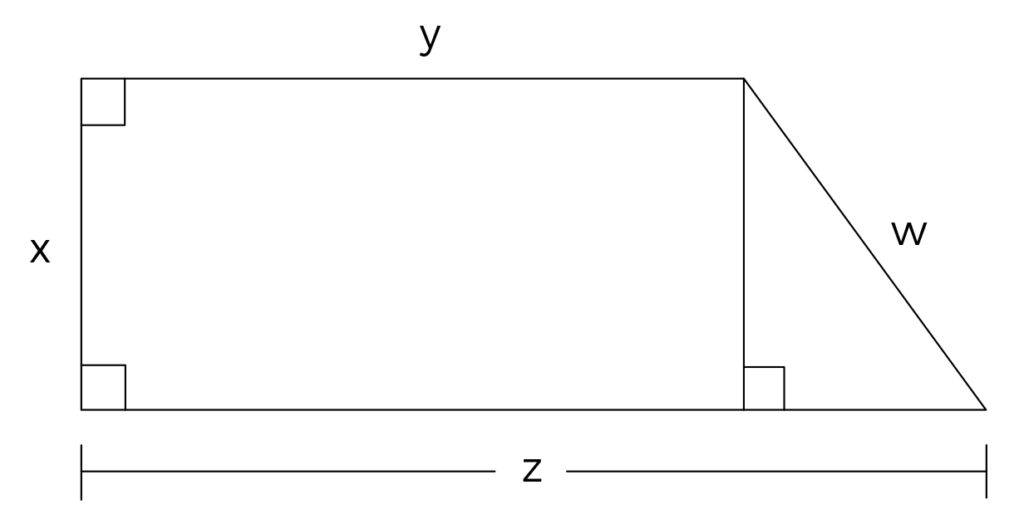
In the figure above, what is the value of z?
1. x = y = 1
2. w = 2
A. Statement (1) ALONE is sufficient, but statement (2) alone is not sufficient.
B. Statement (2) ALONE is sufficient, but statement (1) alone is not sufficient.
C. BOTH statements TOGETHER are sufficient, but NEITHER statement ALONE is sufficient.
D. EACH statement ALONE is sufficient.
E. Statements (1) and (2) TOGETHER are not sufficient.
Correct Answer: C
Full explanation coming soon. Send us a note if you’d like this added to the express queue!
You’ll find tons of practice questions, explanations for GMAT Official Guide questions, and strategies on our GMAT Question of the Day page.
Here are a few other extra challenging GMAT questions with in depth explanations:
Here’s a tough function question from the GMAT Prep tests 1 and 2:
For which of the following functions is f(a+b) = f(b) + f(a) for all positive numbers a and b?
And a very challenging word problem from the Official Guide. Almost no-one gets this one on the first try but there is a somewhat simple way through it:
Tanya’s letters from the GMAT Prep tests. This one often gets GMAT tutoring students caught up in a tangled net. With combinatorics it’s important to stay practical. We’ll take a look at how to do that in the explanation:
Here’s an exponents puzzle that comes up a lot in GMAT tutoring sessions:
This is one of the most difficult questions in the GMAT universe. That said, there is a simple way to solve it that relies on a fundamental divisibility rule every GMAT studier should know:
Learn more about GMAT tutoring with Atlantic
GMAT Question of the Day Signup
Sign up for 1 challenging GMAT question sent to you each week.

